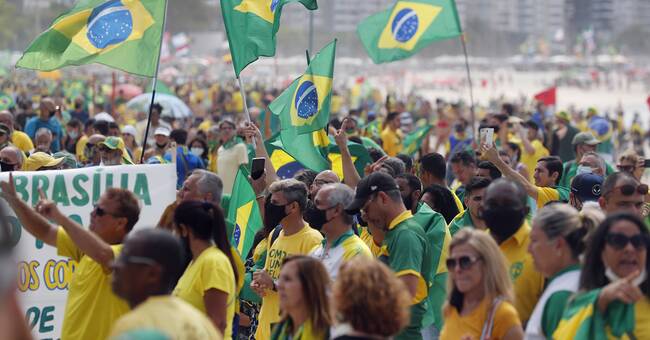Parts of Brasília have been cordoned off before the "Sete de Setembro", the date when the country's independence was declared in 1822. But this year the celebration is expected to stand aside.
On Tuesday, tens of thousands of supporters of President Bolsonaro marched on the capital to demonstrate against the country's judiciary and electoral system.
The president himself has promised to take part in the street march where he will give a speech outside the Supreme Court.
Already on Monday evening, protesters have tried to defy roadblocks around the congress.
Draws parallels to Kapitoluim
Many fear that the national day may degenerate.
Critics warn that the mood among supporters, whipped up by Bolosonaro, could lead to violence similar to the storming of Kapitoluim in the United States in January.
More than 5,000 police and military personnel have been called to Brasilia to protect public buildings and prevent riots.
Later on Tuesday, Bolosonaro also plans to fly to São Paolo to take part in a march along the parade route Avenida Paulista.
Up to two million people are expected to take part in what may then be the largest mass meeting in Brazil's history.
At the same time, large counter-demonstrations are expected to be held by the opposition in the city and the risk of violence is considered to be high.
Declining popularity
The National Day protests come at a time when President Bolsonaro is under heavy pressure.
Bolsonaro is already under investigation by HD after he repeatedly claimed that cheating could occur in next year's presidential election due to the country's electronic voting system.
According to Brazil's electoral authority, no fraud has so far been documented during the 25 years the system has been used.
In addition, the handling of the corona pandemic has caused its popularity to decline and in the latest opinion polls, Bolsonaro is far behind the left-wing candidate Lula da Silva.
In a speech on social media, Lula da Silva says that the president should dedicate Independence Day to giving hope instead of sowing division, hatred and violence.
"Instead of announcing solutions to societal problems, he gathers people to confront democracy," said Lula da Silva.

